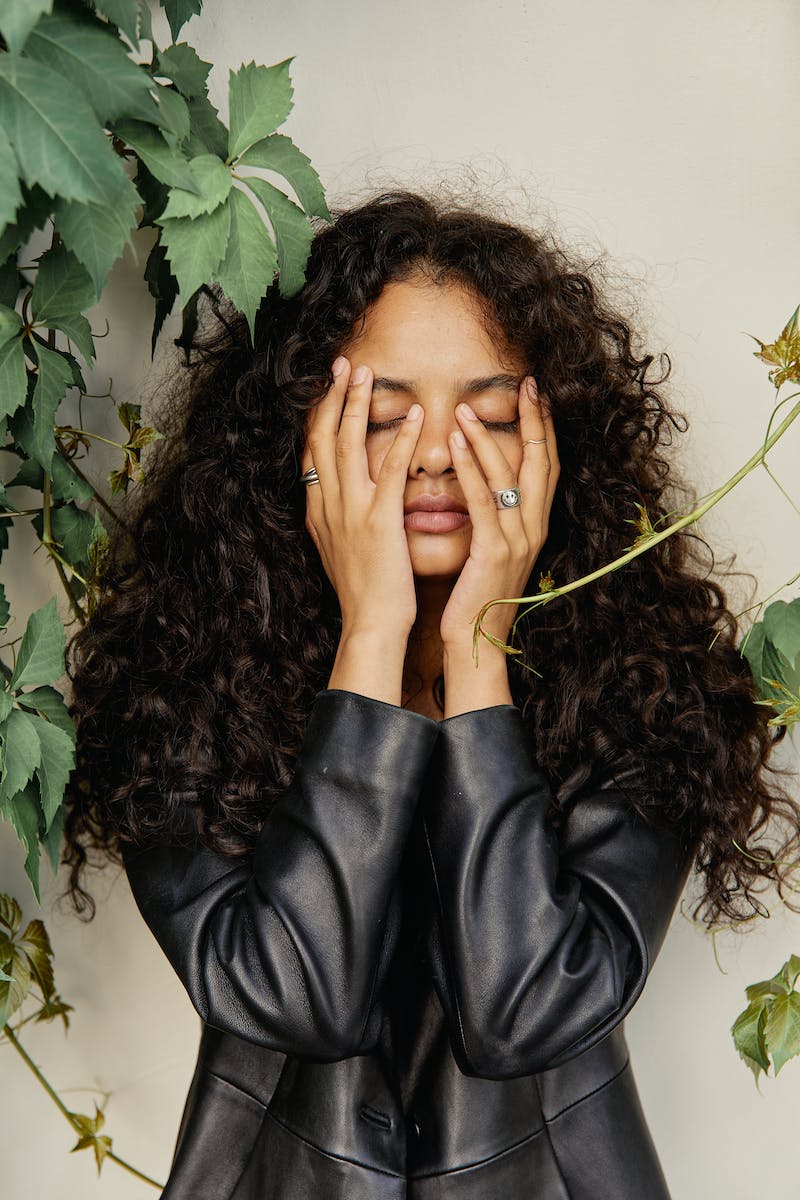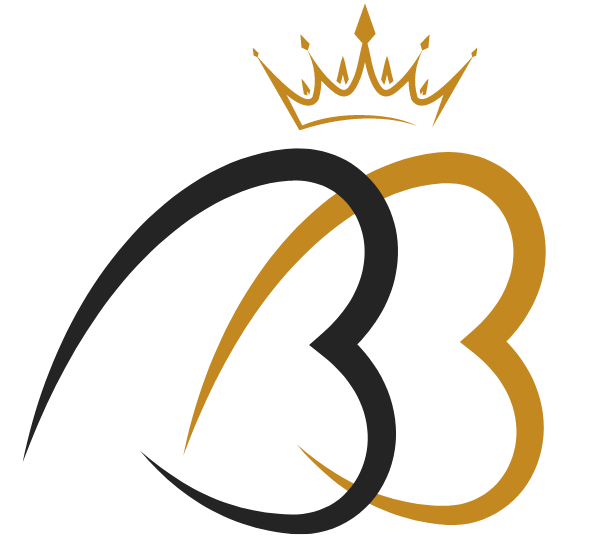Dealing with dandruff can be a frustrating experience, particularly if you've got curly hair. Did you know that certain hair routines and natural remedies could significantly reduce and even eliminate this irksome condition?
In this article, we will unfold the secrets of managing dandruff in curly hair, revealing effective home remedies, practical tips, and suitable products for your unique needs.
Let's dive right into how to get rid of dandruff for curly hair.
Understanding Dandruff in Curly Hair
Dandruff in curly hair is different from a dry scalp, and it can be caused by various factors.
Difference between a dry scalp and dandruff
While both dry scalp and dandruff can leave you with irritating flakes in your curly hair, understanding their differences is key to effective treatment. A dry and itchy scalp often emerges from a lack of moisture, leading to itchy skin that sheds white flakes.
It's usually quenched simply by rehydrating with oils or specific hydrating shampoos. Dandruff, however, is caused by an overgrowth of a yeast-like fungus named Malassezia on an oily scalp — not due to dryness.
These oil-loving fungi trigger inflammation and excessive skin cell growth that results in larger, oilier yellow-tinged flakes compared to a dry scalp’s smaller white ones.
One fast and inexpensive remedy for dandruff includes the aspirin trick, where you mix crushed aspirin into your shampoo, as per important fact number three.
Causes of dandruff in curly hair
Dandruff in curly hair can be caused by a variety of factors. One common cause is a dry scalp, which occurs when the natural oils produced by the itchy scalp are not enough to keep it moisturized.
This can lead to flaking and itching. Another cause of dandruff in curly hair is an overgrowth of a yeast-like fungus called Malassezia. This fungus feeds on the natural oils on the scalp, causing irritation and inflammation that leads to dandruff.
Additionally, certain hair care products containing harsh chemicals or irritants can also contribute to dandruff in curly hair. It's important to pay attention to these potential causes and take steps to address them in order to effectively manage and reduce dandruff for healthier curls.
Effective Remedies for Getting Rid of Dandruff
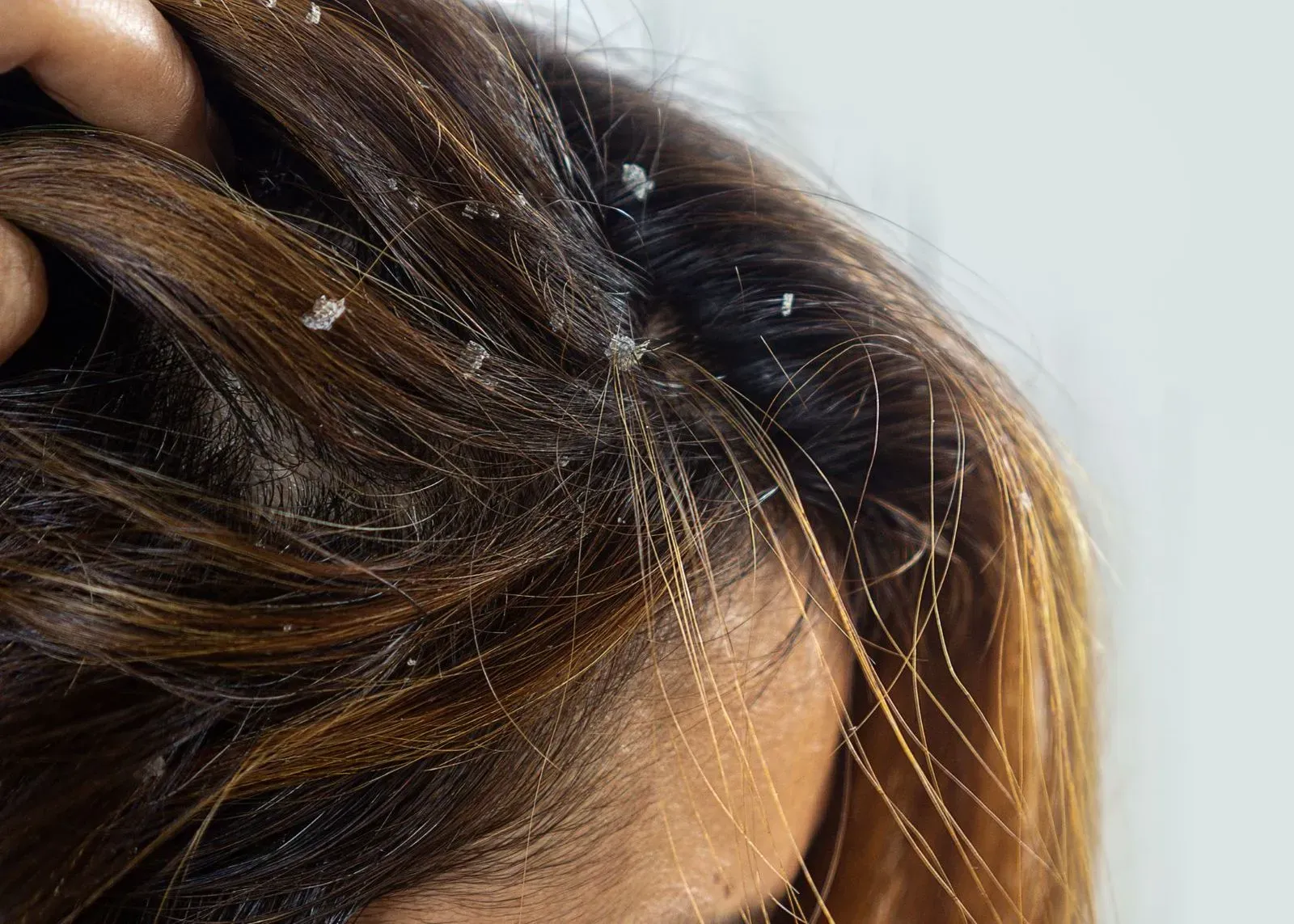
To tackle dandruff in curly hair, there are various effective remedies available, including the use of most anti-dandruff shampoos, DIY treatments, and home remedies, as well as honey as an itchy scalp treatment.
Use of anti-dandruff shampoos
Anti-dandruff shampoos are a popular and effective solution for treating dandruff in curly hair. These specialized shampoos contain active ingredients such as zinc pyrithione, selenium sulfide, or ketoconazole that target the underlying causes of dandruff.
They work by reducing excess oil production on the scalp, combating fungal infections, and soothing dryness and inflammation. When choosing an anti-dandruff shampoo for curly hair, it's important to look for one that is gentle and hydrating to avoid drying out your curls.
Regular use of these shampoos can help control dandruff flakes and itching, leaving your scalp fresh and clean without compromising the health of your curls.
Check out this short video on how you can get rid of dandruff in your curly hair:
DIY treatments and home remedies
To effectively combat dandruff in curly hair, there are several DIY treatments and home remedies that can provide relief. Here are some options to try:
- Baking soda and lemon: Mix two tablespoons of baking soda with the juice of one lemon to create a paste. Apply it onto your scalp and let it sit for 5-10 minutes before rinsing thoroughly. This mixture helps balance the pH levels on your scalp, reducing dandruff.
- Aspirin trick: Crush two aspirin tablets into a fine powder and mix it with your regular shampoo. Massage this mixture into your scalp and let it sit for a few minutes before rinsing. The salicylic acid in aspirin helps exfoliate the scalp, reducing flakiness.
- Tea tree oil: Add a few drops of tea tree oil to your shampoo or conditioner and use it regularly to wash your hair. Tea tree oil has natural antifungal properties that can help eliminate dandruff-causing yeast on the scalp.
- Coconut oil treatment: Warm up some coconut oil and apply it to your scalp, massaging gently to improve blood circulation. Leave it on overnight or for at least 30 minutes before washing it off with a mild shampoo. The moisturizing properties of coconut oil can help soothe a dry, flaky scalp.
- Apple cider vinegar rinse: Mix equal parts of apple cider vinegar and water in a spray bottle. After shampooing, spray this solution onto your scalp and massage it in for a few minutes before rinsing with water. Apple cider vinegar balances the pH level of the scalp and helps control dandruff.
Honey as an itchy scalp treatment
Honey is a natural and effective remedy for soothing an itchy scalp caused by dandruff in curly hair. Its antibacterial and antifungal properties help to combat the underlying causes of dandruff, while its moisturizing abilities relieve dryness and irritation.
Honey also contains antioxidants that promote scalp health and stimulate hair growth.
To use honey as an itchy scalp treatment, simply mix equal parts of raw honey with warm water until well combined. Gently massage the mixture into your scalp, focusing on areas affected by severe dandruff or itchiness.
Leave it on for about 20 minutes before rinsing thoroughly with lukewarm water.
For best results, incorporate this honey treatment into your regular hair care routine once or twice a week. You can also combine honey with other ingredients, such as lemon juice or tea tree oil, for added benefits against dandruff-causing fungi and bacteria.
Remember, when using honey as a scalp treatment, make sure to use raw and organic honey to maximize its therapeutic properties. Also, patch-test the mixture on a small area of your skin before applying it to your entire scalp to avoid any potential allergic reactions.
Best Practices for Managing Dandruff in Curly Hair
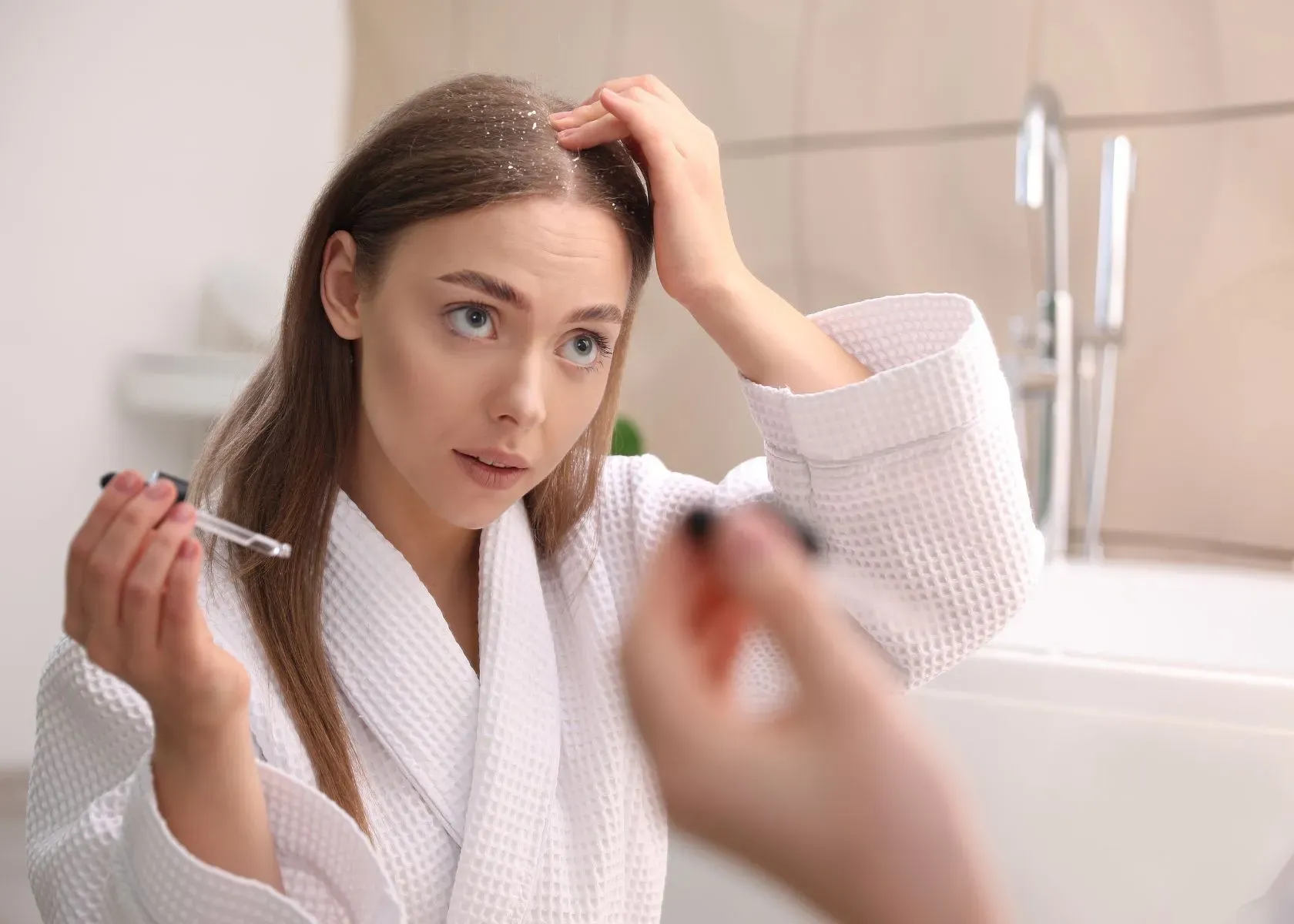
Manage dandruff in curly hair with these best practices: shampoo frequently, avoid certain straight hair product ingredients, and maintain proper scalp hygiene. Here is how to get dandruff out of curly hair:
Frequent shampooing
Regular shampooing is an essential practice for managing dandruff in curly hair. By keeping your scalp clean and free from excess oil and dead skin cells, you can significantly reduce the occurrence of dandruff flakes.
When washing your hair, opt for a gentle anti-dandruff shampoo specifically formulated for curly hair. Look for ingredients like zinc pyrithione or ketoconazole, which effectively target the fungus responsible for dandruff.
Washing your hair at least twice a week will help control sebum production and keep your scalp healthy. Remember to massage the shampoo into your scalp using gentle circular motions to ensure thorough cleansing.
Avoiding certain hair product ingredients
To effectively manage dandruff in curly hair, it's important to be mindful of the ingredients in the hair products you use. Certain ingredients can exacerbate scalp irritation and worsen dandruff symptoms. Here are some key ingredients to avoid:
- Sulfates: Sulfates are commonly found in many shampoos and cleansers as they create a rich lather. However, they can strip the scalp of its natural oils, leading to dryness and flaking. Look for sulfate-free shampoos or those specifically formulated for sensitive scalps.
- Fragrances: Synthetic fragrances in hair products can cause scalp irritation and trigger allergic reactions in some individuals. Opt for fragrance-free or naturally scented products to reduce the risk of aggravating your scalp.
- Alcohol: Alcohol-based styling products can dry out the scalp and lead to increased dandruff. Check product labels for ingredients like ethanol, isopropyl alcohol, or SD alcohol, and opt for alcohol-free alternatives.
- Silicones: While silicones can provide temporary smoothness and shine to curly hair, they can also build up on the scalp over time, leading to clogged pores and flakiness. Consider using silicone-free products or clarifying shampoos occasionally to remove any buildup.
- Parabens: Parabens are preservatives commonly used in cosmetic products but have been associated with skin irritation and allergic reactions. Look for paraben-free options when choosing your hair care products.
Proper scalp hygiene
To effectively manage dandruff in curly hair, it's important to maintain proper scalp hygiene. Here are some key practices to follow:
- Wash your hair regularly: Frequent shampooing helps remove excess oil, dead skin cells, and flakes from the scalp. Use a gentle anti-dandruff shampoo specifically formulated for curly hair.
- Massage your scalp: While shampooing, take the time to gently massage your scalp with your fingertips. This helps improve blood circulation and exfoliates the scalp, reducing dandruff buildup.
- Rinse thoroughly: Make sure to rinse your hair thoroughly after shampooing to remove any residue or product buildup that can contribute to dandruff.
- Avoid hot water: Hot water can strip the natural oils from your scalp, leading to dryness and increased dandruff. Stick to lukewarm or cool water when washing your hair.
- Pat dry gently: After washing, avoid vigorously rubbing your hair with a towel as it can cause frizz and breakage. Instead, gently pat dry or squeeze out excess moisture using an old t-shirt or microfiber towel.
- Avoid scratching or picking at your scalp: Scratching can damage the scalp and worsen dandruff symptoms. If you find yourself itching, try using a soothing anti-itch spray or applying aloe vera gel directly on the affected areas.
- Brush or comb regularly: Brushing or combing your hair helps distribute natural oils throughout strands and prevents product buildup on the scalp, which can exacerbate dandruff. Use a wide-toothed comb or brush specifically designed for detangling curly hair.
Choosing the Right Hair Care Products for Dandruff-Prone Curly Hair
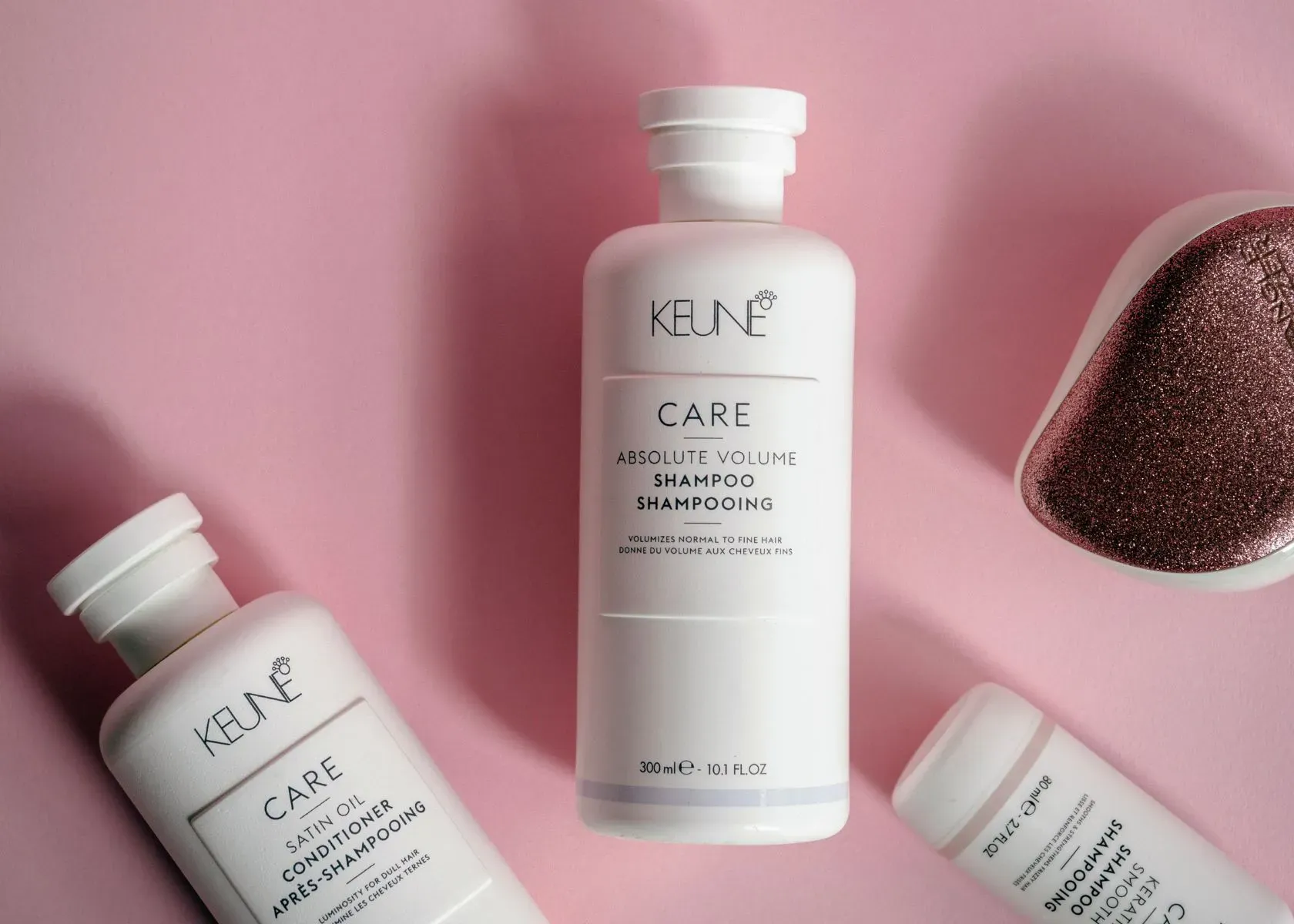
When it comes to managing dandruff in curly hair, choosing the right hair care products is essential. From anti-dandruff shampoos formulated specifically for curly hair to hydrating cleansers and co-washing options, finding the products that work best for you can make a significant difference in reducing dandruff.
Discover the top recommendations and tips for keeping your dandruff-prone curls healthy and flake-free.
Anti-dandruff shampoos for curly hair
- Look for shampoos specifically designed to treat dandruff in curly hair.
- Choose products that contain active ingredients like zinc pyrithione, ketoconazole, or salicylic acid, as they effectively combat flaky scalp.
- Opt for sulfate-free shampoos to avoid further drying out your curls and scalp.
- Consider shampoos infused with natural ingredients like tea tree oil or neem oil, known for their anti-dandruff properties.
- Look for moisturizing formulas that will nourish your curls while treating dandruff.
- Test different brands and formulations to find the one that works best for your curly hair type and dandruff severity.
- Follow the instructions on the shampoo bottle carefully and use it consistently to see results.
Hydrating hair cleansers
For curly hair prone to dandruff, using hydrating hair cleansers can be a game-changer. These specially formulated cleansers are designed to provide moisture and nourishment to both the scalp and hair, helping to combat dryness and flakes.
They often contain ingredients like shea butter, coconut oil, or aloe vera that deeply moisturize and soothe the scalp. Additionally, these hydrating cleansers help balance the natural oils of your hair without stripping it of its essential moisture.
By incorporating hydrating hair cleansers into your routine, you can effectively cleanse your curly locks while keeping dandruff at bay.
Co-washing as an option
Co-washing, or conditioner washing, is a popular option for managing dandruff in curly hair. Instead of using traditional shampoos that can strip the scalp's natural oils, co-washing involves using a moisturizing conditioner to cleanse the scalp and hair follicles.
This method is particularly beneficial for those with dry and sensitive scalps as it helps retain moisture and prevent further irritation.
One key benefit of co-washing is that it doesn't disrupt the natural curl pattern or leave the hair feeling dry and brittle like some shampoos can. By replacing shampoo with a cleansing conditioner, you can gently remove build-up on the scalp without stripping away essential oils, like jojoba oil, that help keep your curls healthy.
It's important to note that while co-washing can be an effective option for managing dandruff in curly hair, it may not work for everyone. Some individuals may find that their scalp needs occasional cleansing with a clarifying shampoo to thoroughly remove product buildup and excess oil.
Experimenting with different products and routines will help you determine what works best for your unique needs.
How to Get Rid of Dandruff with Curly Hair - FAQs
Here are some additional FAQs relating to how you can get rid of severe dandruff with curly here.
Can dandruff occur in people with curly hair?
Yes, dandruff can affect individuals with all types of hair, including those with curly hair. Dandruff is caused by various factors such as dry scalp, excess oil production, or a yeast-like fungus called Malassezia.
What are the common causes of dandruff in curly hair?
Common causes of dandruff in individuals with curly hair include an imbalance of scalp oils, lack of proper moisture and hydration, sensitivity to certain hair products or ingredients, and not properly cleansing the scalp.
How can I get rid of dandruff in my curly hair?
To get rid of dandruff in your curly hair, it's important to maintain a regular cleansing routine using anti-dandruff shampoos that contain active ingredients like zinc pyrithione or ketoconazole. Additionally, moisturizing the scalp regularly and avoiding harsh styling products can help alleviate dandruff symptoms.
Are there any home remedies for treating dandruff in curly hair?
Home remedies like applying apple cider vinegar rinse, jojoba oil, or coconut oil to the scalp have been known to provide relief from dandruff symptoms in some cases; however, it's important to consult a dermatologist or trichologist before trying any home remedies as they may not be suitable for everyone and could potentially worsen the condition if used improperly.
Conclusion
Managing dandruff in curly hair is possible with the right approach and products. By understanding the causes of dandruff in curly hair and implementing effective remedies such as anti-dandruff shampoos and DIY treatments, you can reduce and eliminate pesky flakes.
Additionally, following best practices like frequent shampooing, avoiding certain ingredients, and maintaining proper scalp hygiene will help keep your curly hair dandruff-free.
With the right care routine and product choices tailored to your specific needs, you can enjoy healthy, beautiful curls without worrying about dandruff.
If you have some personal tips, you can share them with all of us in the comments below.
Read More About Dandruff Related Topics
